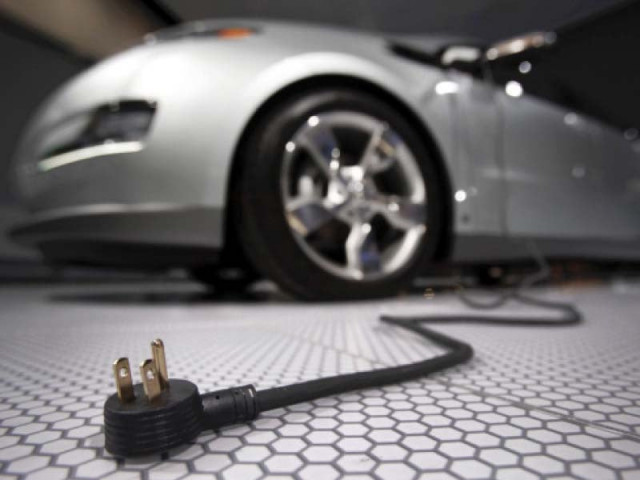EV dealers call for incentives
Say EVs offer advantages despite initial cost that can be mitigated via localisation

Out of a total of 34 brands of Electric Vehicle (EV) two and three-wheelers, almost 20 have introduced newer models, catering to all age groups. Sales volumes have improved following a lacklustre period during Ramazan.
The Engineering Development Board (EDB) has granted licenses to 34 EV bike companies, including those manufacturing electric rickshaws. While all are operational, 20 have displayed their units in showrooms, attracting local customers to well-decorated and well-maintained spaces showcasing more appealing, comfortable, and up-to-date models.
EV dealers explained that they are reassuring customers that they won’t experience any regret or disappointment after purchasing an EV bike. They often chant the slogan “Mehnga Roye Ek Baar, Saastaa Roye Baar Baar!” (Expensive items may sting at the time of purchase, but a cheap product can lead to perpetual headaches.)
In the blink of an eye, people may grasp the main difference between both types of motorbikes. However, unfortunately, market leaders of fuel-powered motorbikes have ingrained serious misconceptions in the minds of customers regarding the higher cost, poor local road infrastructure, lack of qualified EV technicians, and the absence of electric stations.
“People are transitioning from fuel motorbikes to EV motorbikes as they once did from basic mobile phones to smartphones. Chinese branded EV bikes are priced between Rs155,000 to Rs360,000 per unit, while Japanese fuel bikes range from Rs157,000 to Rs550,000. Chinese fuel bikes are gradually disappearing from the market. Additionally, EV sport, luxury, and heavy bike models are displayed in various showrooms, priced from Rs550,000 to Rs1.25 million. The attractiveness of EV models and inflation have decreased sales of fuel bikes, including Honda by 15%, Suzuki by 30%-40%, Yamaha by 50%, and various Chinese fuel bike brands by up to 90% in the local market,” stated Auto Sector Expert and dealer Muhammad Sabir Sheikh.
He mentioned that individuals who lead organised lives prefer EV bikes for their low maintenance requirements. However, many careless motorbike riders still lean towards fuel bikes, despite the hefty maintenance costs involved. EV companies offer technical support at the customer’s home if the bike encounters issues. Otherwise, EVs require no maintenance, fuel, oil, or filters.
He stressed the importance of localisation in the EV industry as EV volumes increase.
Eminent Auto Sector Analyst Mashood Khan explained the need for the government to provide incentives to stimulate the EV market. He suggested allowing short-term phase-wise imports of Completely Knocked-Down (CKD) kits or Completely-Built-Up (CBU) units and implementing easy instalment plans through commercial banks or other strategies.
Addressing the challenges of this emerging industry, he pointed out that a long-term policy for kit imports could deplete foreign exchange reserves. Additionally, poor road infrastructure may pose challenges for EV adoption. He stressed the importance of implementing a localisation policy for technology transfer and urged the government to establish R&D (research and development) centres to drive innovation in the EV industry, citing China’s success in this regard.
Furthermore, he highlighted the necessity of improving road infrastructure, ensuring stable electricity supply without fluctuations, and establishing charging station infrastructure, especially considering that a significant portion of the urban population resides in vertical housing arrangements where charging EV bikes may pose additional challenges.
Regarding market dynamics, he noted the significant demand for fuel motorbikes, exceeding two million units per annum. He acknowledged the uncertainty surrounding the EV industry’s share of this market but underscored that EV bikes offer advantages despite the initial cost, which could be mitigated through localisation strategies.
Published in The Express Tribune, April 28th, 2024.
Like Business on Facebook, follow @TribuneBiz on Twitter to stay informed and join in the conversation.


















COMMENTS
Comments are moderated and generally will be posted if they are on-topic and not abusive.
For more information, please see our Comments FAQ